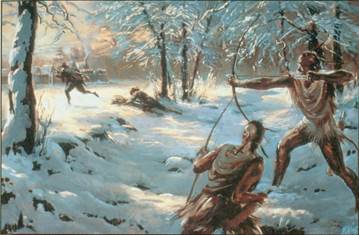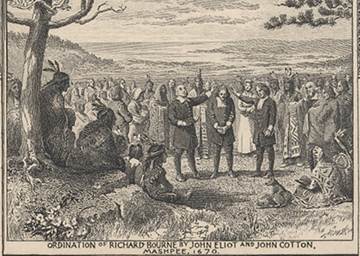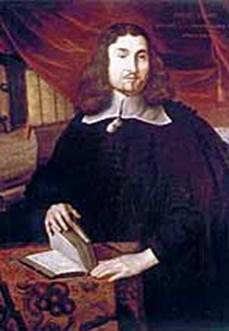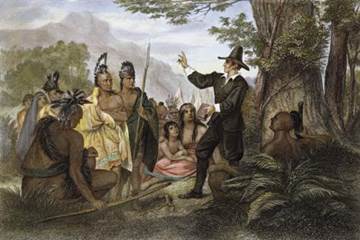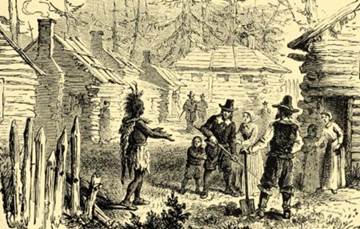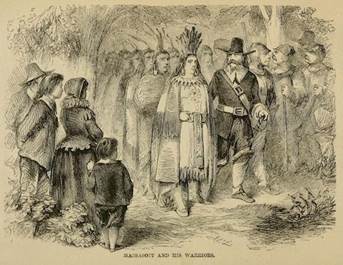Christian History
Indians and Early American Settlers!

Christian History
“My people are destroyed for lack of knowledge.”
Hosea 4:6
There were certainly some early American settlers that were not good to the American Indians, as sin resides in all men. But on the other hand, many settlers viewed natives as an unpredictable danger, as sometimes they would steal from farms, scalp, or kidnap women and children.
Among the thousands kidnapped were: Mary Rowlandson and 3 of her children, by the Narraganset during King Philip’s War in 1676; Hannah Dustin and her six day old baby, by the Abenaki in 1697;
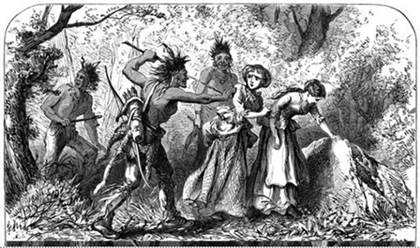
Mary Campbell, at the age of 10, was kidnapped by Chief Pontiac’s warriors in 1758. Frances Slocum, at the age of 5, was kidnapped by the Delaware in 1778. Indiana’s Frances Slocum Trail and State Park is named for her.
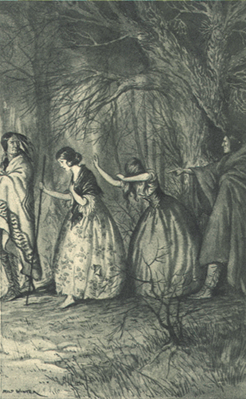
Eunice Williams, at the age of 8 years old, after the Mohawk killed her family in 1704; Mary Draper Ingles, at the age of 23, after the Shawnee massacred her family in 1755; Mary Jemison, at the age of 12 years, by the Shawnee in 1755.
By the 1600s, nearly all of Europe, Asia, China, India, North Africa, and the Middle East, had: written languages; metal tools; scientific advancements; agricultural technologies; and armor, gunpowder and advanced weapons.
By comparison, native inhabitants of North America had only a subsistence lifestyle. To the Europeans they were barbaric and savage, and they did practice human sacrifice and cannibalism. Many of the Indians tribes treated each other this way. This was a lifestyle for many of the tribes.
Even though some of the settles had no pity for the Indians, at the same time there were many Gospel-motivated settlers showing the Indians as much love and kindness as possible, in hopes they would open up to hearing the message of how much the Creator loved them and sent His only Son to die for them.
Many early American evangelists preached the gospel to the Indians and sacrificed their lives for their spiritual and physical welfare: Thomas Tupper (1578-1676), a founder of Sandwich, Massachusetts, gave his life sharing the gospel to the Indians and always helping them. Richard Bourne (1610-1682), who sought fair treatment for the Indians and worked for 20 years to secure for them protected land in Mashpee. Through the evangelistic influence of many Christian preacher to the Indians they preserved peace throughout the Cape during the perilous times of Indian warfare.
Another Gospel-motivated settler was Missionary John Eliot. He was called “Apostle to the Indians.”
He sailed to America and preached his first sermon in the Algonquian language in 1646. Eliot printed the first book in North America – the Bay Psalm Book. Eliot translated the Lord’s Prayer, the Ten Commandments, and the Bible – the first to be printed in America, in 1663, and also printed the first Indian Bible.”
In a 1674 census, there were 4,000 “Praying Indians” in 14 self-ruling villages.
Villages were complete with houses, streets, bridges, and their own ministers. “Praying Indian” villages were located throughout Massachusetts, Martha’s Vineyard, and Rhode Island. The Teacher of the Praying Indians of Nantucket, reported, “the Indians made good Confessions of Jesus Christ and there were about ninety families who pray unto God in that island, so effectual is the Light of the Gospel.”
John Eliot helped his Indian converts to build their first meeting house in 1651, with a ‘Prophet’s Chamber’ where he lodged on his visits to preach to them in their own language. His disciple Daniel Takawambait was New England’s first native Indian minister, ordained in Natick, Massachusetts, in 1681.
Pilgrim leader William Bradford, governor of Plymouth Colony for 30 years, made peace with local India Wampanoag Chief Massasoit and became friends, which maintained peace between the Plymouth settlers and all the Indians in that area.
Sadly, after Bradford died in 1657 and Chief Massasoit died in 1661, tensions arose between the settlers and Indians. Massasoit’s son was known as chief or “King” Philip. He did not have the same spirit as his father. He wanted to rule and the all the settlers to be gone. King Philip recruited warriors from other tribes in the northeast and attacked more than half of New England’s 90 towns.
Mendon’s First Meeting House, built 1658, was destroyed by King Philip’s warriors at the burning of the town in 1676. Rev. Joseph Emerson – its only minister, was ancestor of Ralph Waldo Emerson.
During King Philip’s War, 1675-1678, over 800 settlers died, 1,200 homes burned, 8,000 cattle lost, and the entire English population of 52,000 in Massachusetts and Rhode Island was threatened to be driven back to the coast.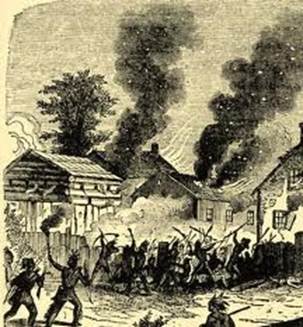
Unfortunately, John Eliot’s Christian “Praying Indians” were caught in the middle. They were not trusted by King Philip’s warriors nor by the panicking colonists. As a results, many tragically died.
For years the “Praying Indians” lived peacefully with white settlers. The Indians did not buy and sale land from one another but if a tribe wanted more land they would just kill off other tribes to get it. However, most of the land that the early American moved onto they purchased from the Indians. John Eliot converted many Indians, including most of the Tahattawan tribe.
In 1654, Nashoba, meaning ‘land between the waters’ was named the Sixth Praying Indian town. In 1675, during King Philip’s War, “Praying Indians” were accused of mischief, rounded up and marched to Deer Island in Boston Harbor where many died. Survivors were released in 1677, but only a few returned, including Sarah Doublet. They were given 500 acres called New Town. Sarah Doublet died in 1730. She was the last of the known of thousands of “Praying Indians.”
“The godly will possess the land and will live there forever” (Ps. 37:29). Though not all early Americans were godly, at the time of the American Revolution, over 90% of all Americans went to church and professed Jesus Christ as Lord. And prior to that, the estimation was even much higher. Thus, God let the majority godly early Americans possess the land. But when a critical mass of people ceases to be godly, they are no longer guaranteed to possess the land.
[This blog is free to share if forwarded in its entirety.]
